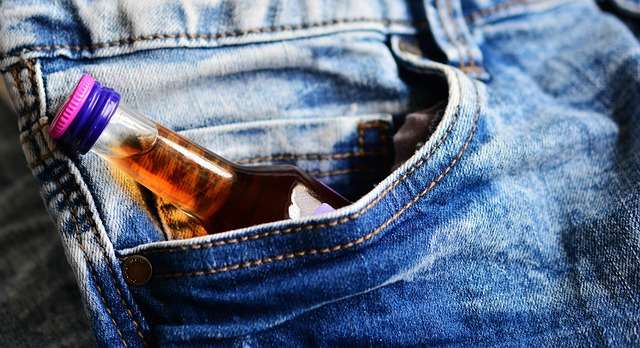
Parenting young children is never easy. But when alcohol use disorder is present in your home, the challenges multiply in ways many people can’t imagine.
The fear, shame, and exhaustion of trying to manage daily life while protecting your children from the chaos can leave you feeling like you’re walking on eggshells. You want to shield your kids, but you also want to hold the family together. And at times, it can feel like you’re failing at both.
If this is your reality, I want you to know: you’re not alone. Many moms are quietly carrying this same weight. And while you can’t control your partner’s alcohol use, you do have influence over what your children learn from living in this environment. The lessons they take away depend less on the drinking itself and more on what they see modeled in the family.
What Kids Learn From Addiction in the Home
Children under the age of 10 are like sponges. They soak up the world around them, even if they can’t fully understand it yet. When they grow up in a home where alcohol use disorder is present, they often walk away with one of two lessons:
- They attach behavior to the person. They may attach the behavior to the person. They see the drinking, the arguments, or the broken promises and begin to believe their parent is ‘bad.’ This creates stigma, judgment, and confusion. How can I hate what my parent does, but still love them?
- They become enmeshed or codependent. They watch the healthy parent cover, hide, or minimize the behavior, and they learn to do the same. Over time, they internalize the idea that love means rescuing others, silencing themselves, or ignoring their own needs.
Neither of these paths serves children well as they grow. But, with intention, you can interrupt these patterns. You can show your children a healthier way to navigate life, even in the middle of a hard situation.
Why Your Modeling Matters
Children don’t just learn from what we tell them. They learn from what they see us do. When you set boundaries that protect your or their well-being, care for yourself, or speak the truth in an age-appropriate way, your kids notice.
By modeling these practices, you give your children tools that will last a lifetime:
- That it’s possible to care about someone without excusing harmful behavior.
- That it’s okay to have feelings and needs of your own.
- That honesty builds safety, even when the truth is hard.
- That self-care isn’t selfish, it’s necessary.
Even if your partner isn’t in recovery, you can create a family culture that supports resilience and stability. And that family culture will shape how your children understand relationships, responsibility, and love, and their place in love, for the rest of their lives.
Practical Ways to Protect and Teach Your Children
So what does this look like in practice? Here are some tangible steps you can take right now to help your children feel safe and learn healthy ways of relating:
- Set clear boundaries around behavior.
Let your children see that certain behaviors are not acceptable, even if you still love the person. For example: “Daddy can’t drive if he’s been drinking. That’s not safe.” This shows them that love and accountability can coexist. - Don’t cover or hide.
Kids can feel when something is wrong. Pretending everything is fine only confuses them. Instead, offer age-appropriate truths: “Mommy is sick and needs help to get better.” Keep it simple, but honest. This also builds resilience, because children who learn they can handle hard truths are less likely to grow up silencing themselves or avoiding reality. - Prioritize routines and rituals.
Addiction creates unpredictability. Predictable routines, bedtime stories, family meals, Saturday morning pancakes, help children feel safe. These small moments of stability are anchors in a storm. - Practice self-care openly.
Let your kids see you take care of yourself, whether that’s going for a walk, calling a friend, or journaling. It teaches them that caring for your own needs is part of being healthy. - Seek your own support.
Therapy, support groups, or trusted friends give you a place to process your emotions. This not only strengthens you, but also shows your children the importance of leaning on others instead of carrying everything alone. This protects your children from becoming caretakers for either parent, and allows them to stay children, which is one of the greatest gifts you can give them.
A Word About Shame
Many moms dealing with a partner’s drinking feel ashamed. They think they should have prevented it, fixed it, or hidden it better. That shame keeps them isolated, and when you’re isolated, so are your kids.
You didn’t cause this, and you can’t control it. But you can choose how you respond. And choosing to respond with honesty, boundaries, and compassion, for yourself and for your children, is nothing to be ashamed of. In fact, it’s an act of courage.
Creating the Family as Community
When SAMHSA named Community as one of the pillars of recovery, they were pointing to something fundamental: healing happens in connection. For a loved one with alcohol use disorder, the most immediate and influential community is the family.
When families share the burden of change, rather than leaving it all on one person, they become a powerful recovery environment. By working on your own healing, setting clear boundaries, and inviting your children into honesty and stability, you create a family culture that supports recovery for everyone.
Even if your partner doesn’t choose recovery right now, your family can still be a recovery community. And your children will carry those lessons forward, breaking cycles, building resilience, and knowing that love is not about losing yourself, but about showing up with both compassion and strength.
A Final Word of Hope
If you’re parenting young children while managing the impact of a partner’s alcohol use disorder, I know how heavy it feels. There are no easy answers, and some days survival may feel like the best you can do.
But don’t underestimate the impact of the small things: a clear boundary, a bedtime story, an honest word, or a moment of self-care. These are not just coping strategies. They are lessons your children will carry with them long after this season has passed.
Recovery is not just an individual journey; it’s a family and community journey. And by modeling honesty, stability, and love with boundaries, you are already creating the kind of family community that can invite recovery for everyone, and teaching your children what love with courage looks like.
____________________________________________
LISA KATONA SMITH, M.Ed., is a certified Peer Recovery Specialist, family consultant, TEDx speaker, and author. Inspired by her personal experience navigating a family member’s addiction, and motivated by the limitations of traditional support models, she created Parallel Recovery®—a structured, compassionate framework that gives a voice to the untold side of recovery and redefines how families support a loved one through substance use disorder. Through coaching, curriculum development, and professional training, Parallel Recovery guides families nationwide in reclaiming peace and purpose, rebuilding connection, and advancing sustainable change. With over 20 years of professional experience, and in her characteristic warmth and clarity, Lisa continues to advocate for a family-centered healing process that fosters the relationships needed to support addiction recovery. Her forthcoming book, Parallel Recovery: A Guide for Those Who Love Someone Struggling with Substance Use Disorder, will be released September 2025.















